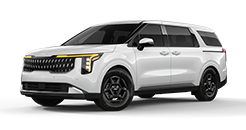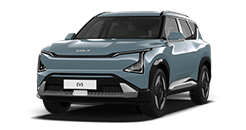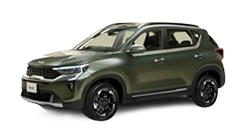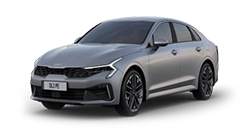open menu
- Home>
- Discover kia>
- ASK>
- What are the disadvantages of a hybrid car?
What are the disadvantages of a hybrid car?
“Hybrids are eco-friendly, have more financial benefits and higher resale value, are more lightly manufactured, and charge themselves through regenerative braking. They have disadvantages but their advantages can offset them.”
Eco-friendly: Since hybrids house an electric motor as well as a gasoline engine, they need less fossil fuel, resulting in less CO2 emissions. On top of that, they have more efficient gas mileage than conventional cars.
Financial benefits: Many governments around the world have introduced tax credits and incentives for buyers and owners of hybrids. They are also exempt from environmental charges.
Higher resale value: As more and more people are getting tired of gasoline price fluctuations and care about our planet, they are becoming more willing to make the switch to hybrids. As a result, the resale value of such vehicles keeps increasing.
Lighter cars: Hybrids are manufactured with lightweight materials, which allow vehicles to run on less energy. Their smaller sized and lightly built engines also contribute to conserving energy.
Regenerative braking: Hybrids use the system called “regenerative braking,” in which the battery recharges a little whenever the driver brakes. The mechanism allows the driver more time between manual recharges.
Less power: Hybrids combine both an electric motor and a gasoline engine, with their gasoline engine primarily operated as the power source. Therefore, neither the gasoline engine nor the electric motor works as strongly as they do in conventional gasoline or electric cars. But Hybrids work just fine for “normal” drivers who usually drive around the city.
Pricey to buy: The initial cost of hybrids is more expensive than conventional vehicles’ in most cases.
Higher running costs: Due to their engine and continuous development in technology, it may not be easy to find a mechanic with the required expertise. And they would likely charge you a little more for maintenance and repairs. Moreover, the highest running cost occurs when replacing the battery.
Poor handling: Hybrids have more machinery than conventional cars, which adds extra weight and reduces fuel efficiency. So, hybrid car manufacturers have had to make smaller engines and batteries to cut down on weight. But this results in reduced power for the vehicle and support in the body and suspension.
Electrocution risk: The batteries in hybrids contain a high voltage, which can increase the risk of the passengers and rescuers being electrocuted in the event of an accident.
Hybrids use an electric motor and a gasoline or diesel engine. The electric motor operates when the car is at lower speeds, and when the vehicle speeds up, the gas engine kicks in to move the wheels. The engine also charges the batteries, and every time the driver brakes, the batteries are charged via regenerative braking.
For further information about what is a hybrid car, click here.
















